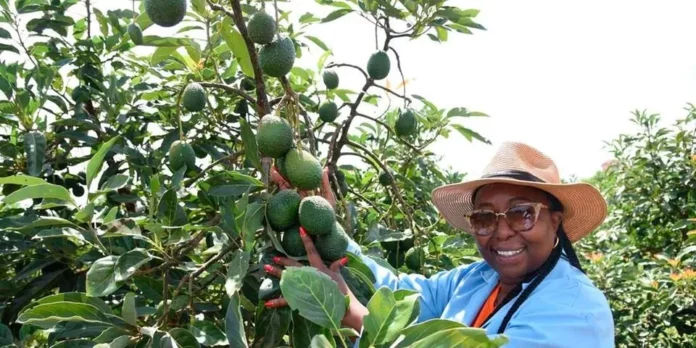Grace Ngugi Karanja, a former programmes manager at an international agency, decided to quit employment in 2018 to follow her passion for farming.
Despite being discouraged by friends and colleagues, she was determined to see herself excel in her father’s footsteps. As such, she started an avocado farm in Karakuta, Juja, Kiambu county.
Her farm hosts over 10,000 trees of both Hass and Fuerte varieties, with all her produce destined for export. Before stepping into the venture, Grace conducted thorough research on farming avocados for the export market.
Read: Meet the Nakuru couple raking fortune from 10-acre Hass avocado farm
She sought information on various large-scale farms, but some hid crucial market information from her in what they termed a “trade secret.” She later attended a trade fair in Italy and Germany to get a glimpse of what kind of fruits potential buyers were looking for.
“The buyers said a lot of immature and small-sized avocados were coming from Kenya. Such immature fruits never ripen but shrink and rot. In Europe, they were clear that they wanted mature avocados of size 12-18. This means that each Avocado has to weigh between 306-211 grams,” she said.
Rich in information on what kind of fruits to grow, Grace founded her large-scale avocado farm, which cost her Sh 3.6 million. She purchased 12,000 seedlings which she planted, observing the best practices to meet international standards.
Her produce is airlifted to the international markets through an agent, with plans to export directly underway. The fruit fetches better prices, with a kilo of Hass avocado going for up to £4 (Sh. 566) in the EU market.
One of the biggest challenges she has encountered in the venture is avocado theft, noting she loses an average of two tonnes of Avocado every season to thieves.
Besides being a farmer, Grace trains farmers across East Africa on best practices for avocado farming to meet international standards.
She says that before planting, soil testing is very important to know the kind of fertilizers to use. Grace notes that certified seedlings that are about a year old are the best option, as they have a success rate of 99 percent.
The seedlings also play an important role in determining the flowering quality of the tree. Further, Avocados should be planted on well-drained raised beds to protect the roots from rotting.
Read: I quit my unrewarding lecturer job to venture into organic farming
From six months to three years, she advises farmers to apply CAN fertilizer on the trees as well as NPK foliar, which has micro-elements needed for photosynthesis and vibrancy of the plant.
“Some plants usually exhibit signs of nutrient deficiency shown by yellow leaves. Healthy plants have dark green leaves. Such plants normally suffer from iron deficiency, and application of a foliar spray that has iron levels is normally needed to revive them.”
Grace advocates for the use of phosphorous fertilizer and well-composted manure on roots to enable the root system to absorb the minerals easily.
After harvesting, proper handling and transportation should be adhered to to maintain the fruit’s quality. She notes that fruits with bruises are considered unfit for the market.









